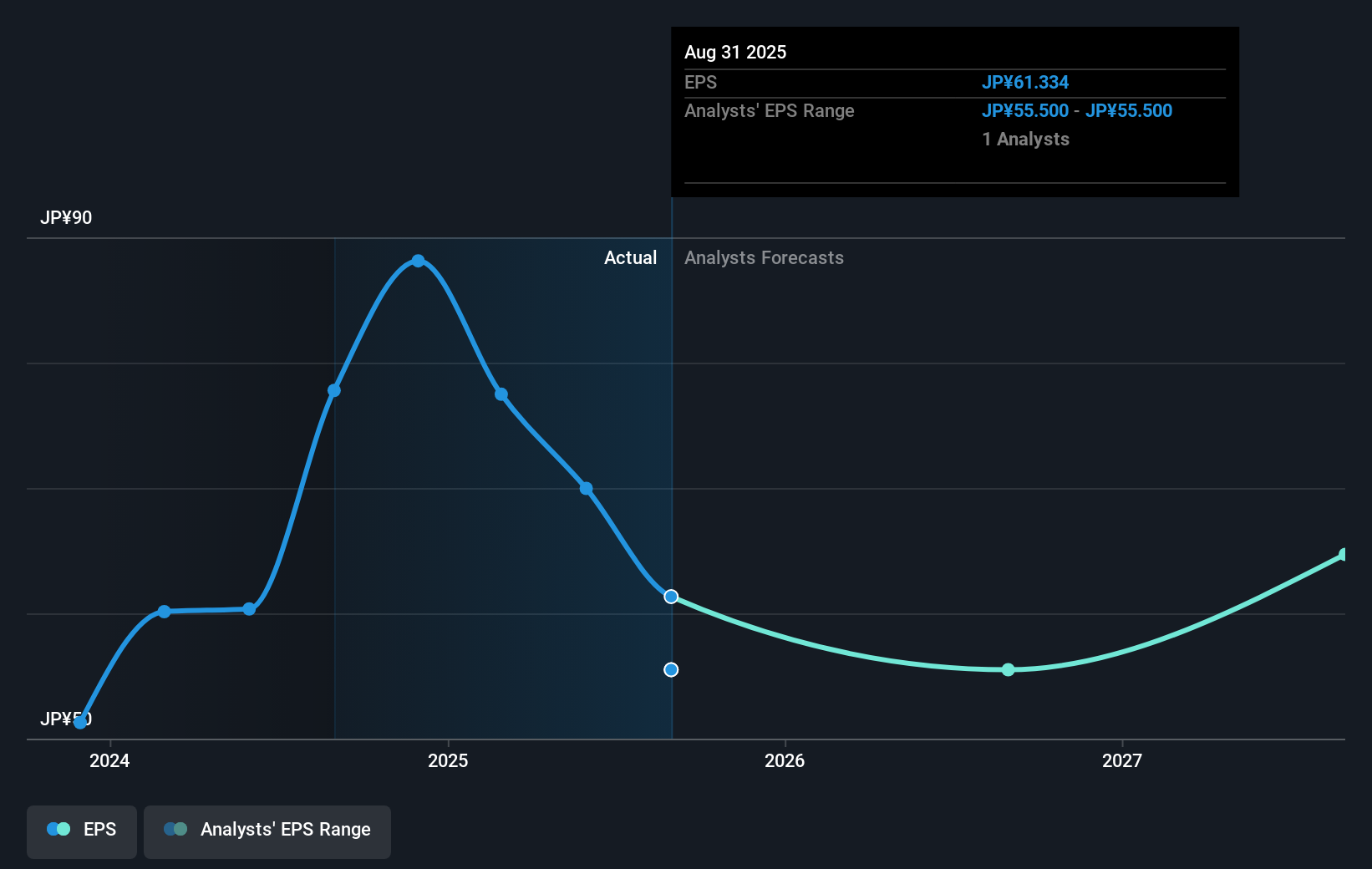- Japan
- /
- Semiconductors
- /
- TSE:6255
NPC's (TSE:6255) earnings growth rate lags the 9.9% CAGR delivered to shareholders
NPC Incorporated (TSE:6255) shareholders might be concerned after seeing the share price drop 13% in the last month. On the bright side the share price is up over the last half decade. However we are not very impressed because the share price is only up 54%, less than the market return of 100%. Unfortunately not all shareholders will have held it for the long term, so spare a thought for those caught in the 32% decline over the last twelve months.
Although NPC has shed JP¥1.8b from its market cap this week, let's take a look at its longer term fundamental trends and see if they've driven returns.
While the efficient markets hypothesis continues to be taught by some, it has been proven that markets are over-reactive dynamic systems, and investors are not always rational. One way to examine how market sentiment has changed over time is to look at the interaction between a company's share price and its earnings per share (EPS).
Over half a decade, NPC managed to grow its earnings per share at 12% a year. This EPS growth is higher than the 9% average annual increase in the share price. So one could conclude that the broader market has become more cautious towards the stock. The reasonably low P/E ratio of 9.83 also suggests market apprehension.
The image below shows how EPS has tracked over time (if you click on the image you can see greater detail).

It is of course excellent to see how NPC has grown profits over the years, but the future is more important for shareholders. It might be well worthwhile taking a look at our free report on how its financial position has changed over time.
What About Dividends?
As well as measuring the share price return, investors should also consider the total shareholder return (TSR). The TSR is a return calculation that accounts for the value of cash dividends (assuming that any dividend received was reinvested) and the calculated value of any discounted capital raisings and spin-offs. It's fair to say that the TSR gives a more complete picture for stocks that pay a dividend. As it happens, NPC's TSR for the last 5 years was 60%, which exceeds the share price return mentioned earlier. And there's no prize for guessing that the dividend payments largely explain the divergence!
A Different Perspective
NPC shareholders are down 31% for the year (even including dividends), but the market itself is up 20%. Even the share prices of good stocks drop sometimes, but we want to see improvements in the fundamental metrics of a business, before getting too interested. On the bright side, long term shareholders have made money, with a gain of 10% per year over half a decade. If the fundamental data continues to indicate long term sustainable growth, the current sell-off could be an opportunity worth considering. It's always interesting to track share price performance over the longer term. But to understand NPC better, we need to consider many other factors. Case in point: We've spotted 2 warning signs for NPC you should be aware of.
We will like NPC better if we see some big insider buys. While we wait, check out this free list of undervalued stocks (mostly small caps) with considerable, recent, insider buying.
Please note, the market returns quoted in this article reflect the market weighted average returns of stocks that currently trade on Japanese exchanges.
Valuation is complex, but we're here to simplify it.
Discover if NPC might be undervalued or overvalued with our detailed analysis, featuring fair value estimates, potential risks, dividends, insider trades, and its financial condition.
Access Free AnalysisHave feedback on this article? Concerned about the content? Get in touch with us directly. Alternatively, email editorial-team (at) simplywallst.com.
This article by Simply Wall St is general in nature. We provide commentary based on historical data and analyst forecasts only using an unbiased methodology and our articles are not intended to be financial advice. It does not constitute a recommendation to buy or sell any stock, and does not take account of your objectives, or your financial situation. We aim to bring you long-term focused analysis driven by fundamental data. Note that our analysis may not factor in the latest price-sensitive company announcements or qualitative material. Simply Wall St has no position in any stocks mentioned.
About TSE:6255
Flawless balance sheet and good value.
Similar Companies
Market Insights
Community Narratives




